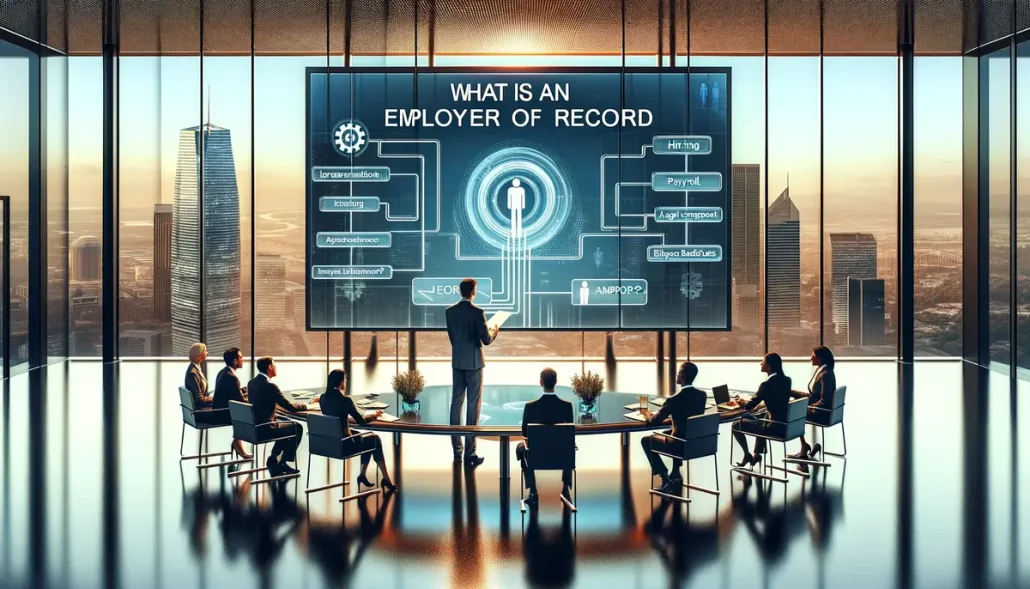- All
- Employer of Record
- Market Entry and Development
- Nearshoring/Offshoring
How to Hire a Java Developer in Turkey
Java developers play a vital role in driving innovation, powering digital transformation, and meeting the diverse needs of today's technology-driven world. Java is a versatile programming language that can be used for a wide range of applications, from enterprise software development to mobile apps, web development, and even in emerging technologies like Internet of Things [...]
Employer of Record vs Staffing Agency: What’s the Difference?
When discussing this with our clients, we often see confusion about the different terms "Employer of Record" (EOR) and “Staffing Agencies”. Both terms relate to the employment and management of workers, but serve distinct roles and offer different services: Employer of Record (EOR) Definition An Employer of Record is an organization that takes on the [...]
Employer of Record vs Umbrella Company: What’s the Difference?
Companies often seek efficient solutions to manage their workforce in different countries. Two options for managing employees are Employer of Record (EOR) and umbrella companies. While both serve as intermediaries between employers and workers, they have distinct features and functions tailored to different needs. In this comprehensive guide, we'll explore the differences between Employer of [...]
Employer of Record vs PEO: What’s the Difference?
Both the Employer of Record (EOR) and the Professional Employer Organization (PEO) offer HR services but differ significantly in their structures, legal responsibilities, and service scope. In this guide, we'll examine the key differences between Employer of Record and PEO to determine which might be the best fit for your business needs. Understanding the Professional [...]
What is Nearshoring?
Nearshoring is a type of offshoring where a business transfers its operations or services to a nearby country, often one that shares a border or is in the same time zone. The motivation for nearshoring is often to lower labor costs while minimizing the challenges associated with different time zones and cultural differences, thus enabling [...]
What is Offshoring?
Offshoring is a business strategy where a company moves part of its operations to another country, mainly to take advantage of lower labor costs. Unlike outsourcing, which involves hiring external organizations to perform tasks, offshoring may still entail the company managing its offshore operations. Offshoring vs. Outsourcing While often used interchangeably, offshoring and outsourcing are [...]
What is Outsourcing?
At its core, outsourcing means that a company delegates a piece of work to another party. The benefits of outsourcing range from lower labor costs and improved efficiency to better quality and product development. Outsourcing is not limited to a specific industry; businesses across sectors like IT, customer service, manufacturing, and healthcare often engage in [...]
Nearshoring vs Offshoring
What is the difference between Outsourcing, Offshoring, and Nearshoring? When we speak to our clients, there is often confusion about the different terms: outsourcing, offshoring, and nearshoring. Similarly, there is often confusion about when to use each term. Let us explain the nuances between these strategies, their pros and cons, and provide some examples of [...]
What is an Employer of Record (EOR)?
In the year 2010, one of our clients approached us with a typical issue. Our client did not had a legal entity in Turkey but wanted to hire one employee there. Registering a local company just to hire one employee was not worth the effort. So the client asked us if we could hire the [...]
Unlocking Growth: The Advantages of Tailored Market Research
In the dynamic landscape of business, understanding your market is the key to staying ahead of the competition. Often, the responsibility of comprehending markets falls under the umbrella of sales and management functions within a company. Export managers embark on extensive market research for new entries, while business development managers craft presentations loaded with facts [...]
Navigating the Maze: Revealing Market Research, Marketing Research and Business Intelligence
In the ever-evolving landscape of global markets, the quest for insights is a universal language spoken by businesses seeking growth and success. Since our establishment in 1999, we've been receiving research requests from around the globe daily. But here's the twist – the terminology used can be a linguistic labyrinth, especially when communicating in different [...]
What are the Common Side Benefits in Turkey
In Turkey, there are some common side benefits which may not be common in other countries. Some of our European customers are surprised when they hear that companies provide shuttle service for commuting, or lunch allowance. Side benefits can be as important as the salary for an employee to accept an offer; hence, a foreign [...]
Recruiting Talent in Turkey: What International Employers Need to Know About Hiring Turkish Employees
As the world economy expands, more businesses are turning to foreign markets in search of bigger development prospects. Recruiting and using local workers is essential to conducting business overseas. It is crucial for global employers to understand the main advantages and considerations when recruiting employees in Turkey. Advantages of Turkish Employees 1. Lower Labor Expenses [...]
Power of Strategic Insight: How to Design a Successful Market Research Project in Turkey
Since our establishment in 1999, our mission at FMC Group has been clear – decoding the complexities of foreign markets for businesses around the world. Each day, we receive research requests from a diverse global clientele, all with a common goal: a drive for understanding and navigating foreign markets. In this blog post, we're offering [...]
Which Recruitment Agency Should I Select for My New Company in Turkey
Did you know that there are around 700 licensed recruitment agencies in Turkey? Which should be the criteria to select the one most suitable to your needs? Particularly if you are new in the market, you will certainly need a reliable local partner. FMC Human Resources is our brand under the umbrella of FMC Group, [...]















